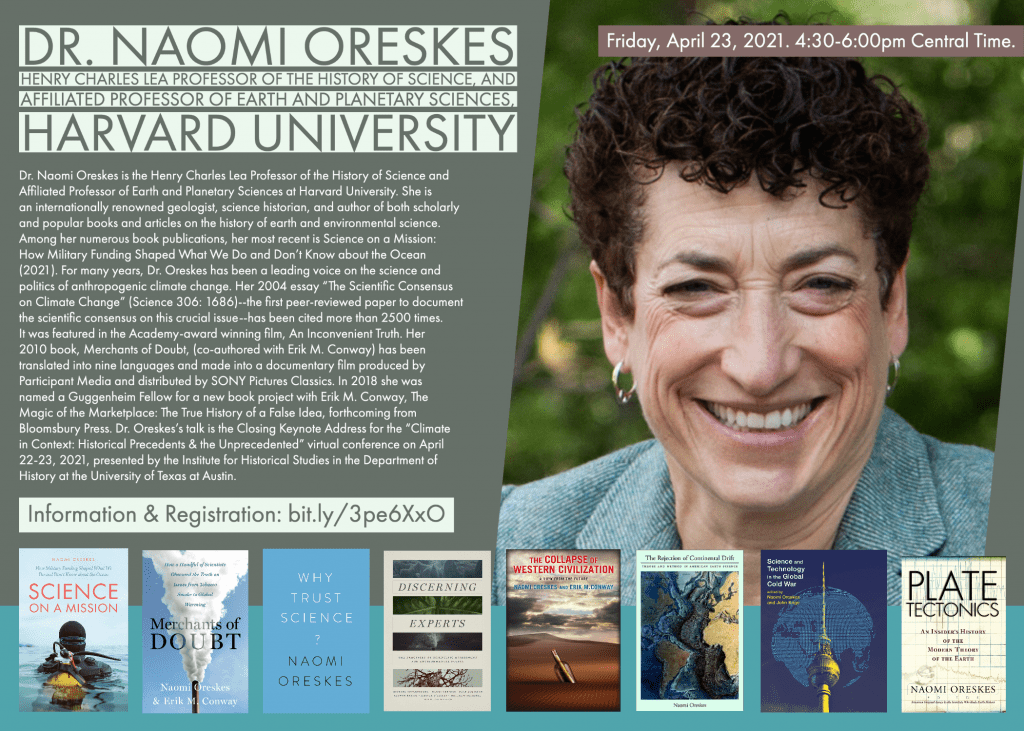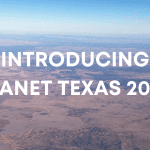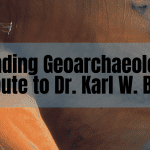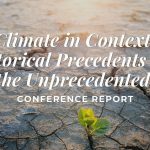From the Editors: The Climate in Context: Historical Precedents and the Unprecedented conference will take place on April 22-23, 2021. It is free and open to the public. Register to attend here. In preparation for the conference, we are delighted to present this introduction to the work of Dr. Naomi Oreskes. Dr Oreskes is the Henry Charles Lea Professor of the History of Science at Harvard University and a keynote speaker for the conference.
This conference brings together diverse scholars whose work grapples with the challenges that climate change presents to the discipline of history. Participants will address precedents for this “unprecedented” crisis by uncovering and analyzing the historical roots and analogues of contemporary climate change across a wide range of eras and areas around the world. Can history offer an alternative to visions of the future that appear to be determined by prevailing climate models, and help provide us with new ways of understanding human agency?
Not many historians of science have had their work cited in an Oscar-winning movie by a Nobel Prize-winning vice president. But Naomi Oreskes’s paper “The Scientific Consensus on Climate Change,” published in Science in 2004 and cited by Al Gore in his film “An Inconvenient Truth,” not only established that virtually all climate scientists agree that anthropogenic climate change is all too real. It also established Oreskes as a leading voice both in understanding the formation of that consensus and in exposing the powerful forces that have sought to deny it. In her subsequent writings, particularly Merchants of Doubt (2010) and her fictional “history of the future,” The Collapse of Western Civilization (2014), both written with Erik M. Conway, Oreskes has carried this work much further, reinforcing her standing as a public intellectual on issues of climate change and the place of science in contemporary policy debates. In Why Trust Science (2019), based on her Tanner Lectures at Princeton University, she has brought together much of her recent work to argue that the real basis of the trustworthiness of scientific knowledge lies in its social character.
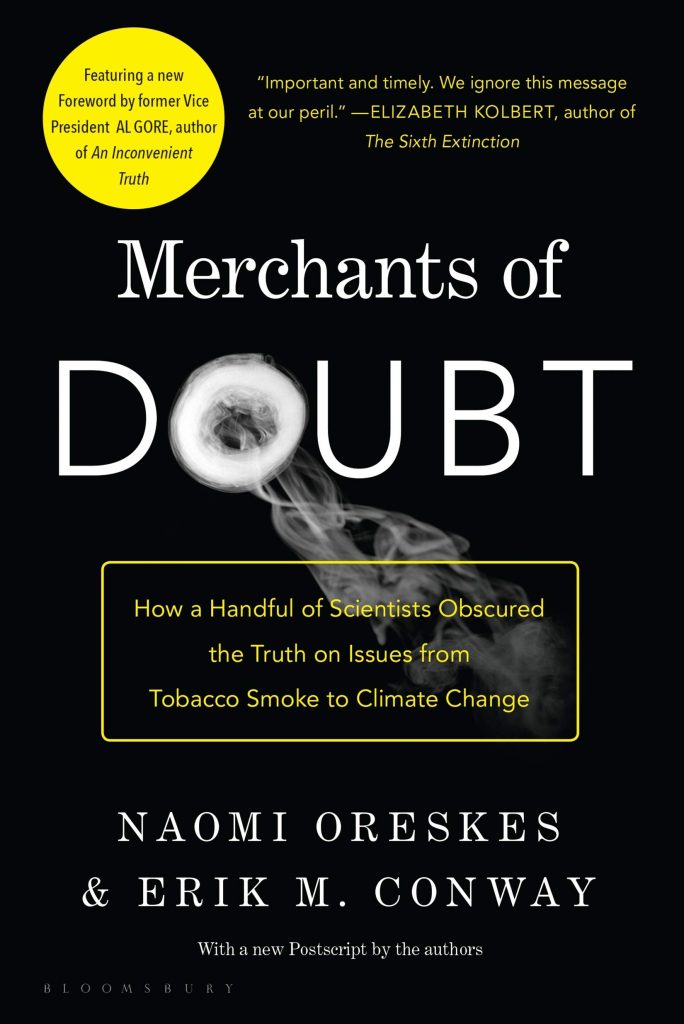

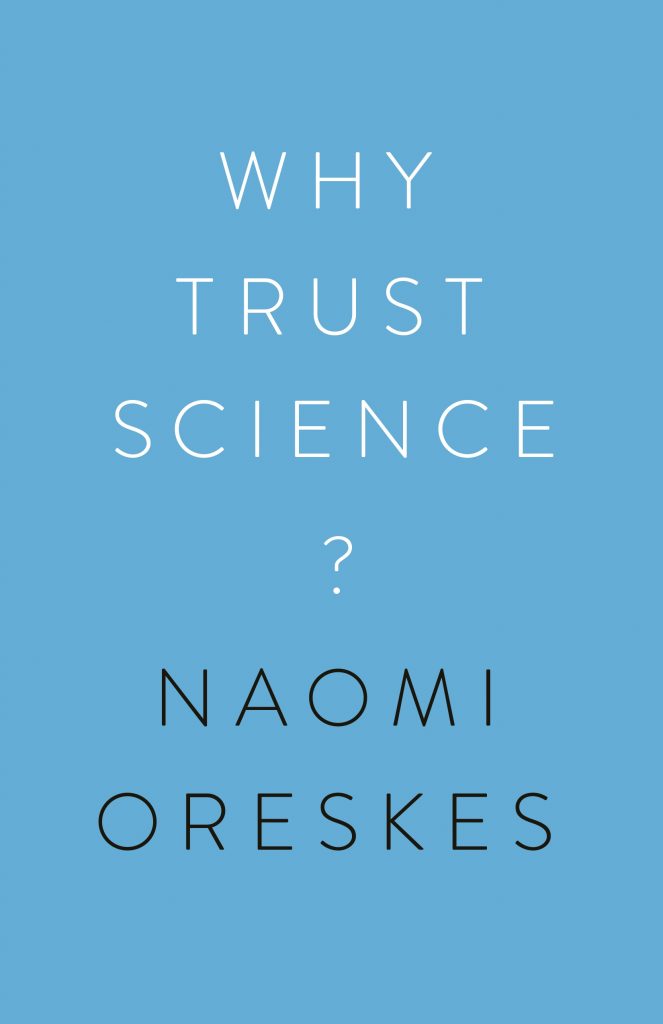
Originally trained as a mining engineer at Imperial College in London, Oreskes worked in the field in Australia for several years before returning to graduate school at Stanford, where she completed a specially designed doctoral program in both geological research and the history of science. She then taught at Dartmouth and New York University before moving to UC-San Diego, where she spent fifteen years in the History Department and the Program in Science Studies. In 2013 she moved to Harvard, where she is now a professor of the History of Science and an affiliated professor of Earth and Planetary Sciences.
Oreskes’s first book, The Rejection of Continental Drift: Theory and Method in American Earth Science (1999), already reflected her combination of careful historical research with close attention to issues of method and credibility in science. Along the way she produced an especially illuminating paper, “Objectivity or Heroism? On the Invisibility of Women in Science,” in which she used the case of the astronomer and geophysicist Eleanor Lamson to examine how and why scientific work done by women is often devalued or ignored. The History of Science Society awarded this paper its Women in Science Prize, just one of the many prizes and honors Oreskes has received.
In 2011, Merchants of Doubt received the Watson Davis Prize, awarded by the History of Science Society for the best book in the field aimed at a wide public. In it, Oreskes and Conway examine, as their subtitle states, “How a Handful of Scientists Obscured the Truth on Issues from Tobacco Smoke to Climate Change.” Focusing in particular on Fred Seitz, Fred Singer, Bill Nierenberg, and Robert Jastrow, physicists associated with the George C. Marshall Institute and other politically conservative “free market” organizations, Oreskes and Conway show how this small circle of well-placed scientists was able to sow doubts in the public mind and slow the regulation of tobacco smoke, acid rain, ozone-depleting chemicals, and most prominently, the sources of anthropogenic climate change. Merchants of Doubt attracted wide attention and strong praise. Robin McKie of the The Guardian was not alone in calling it “the best science book of the year,” and Al Gore declared that “Anyone concerned about the state of democracy in America should read this book.” Robert Kenner’s 2014 documentary film, also called Merchants of Doubt, brought the themes of the book to an even wider audience.
In Merchants of Doubt, The Collapse of Western Civilization, and a third book with Conway, The Magic of the Marketplace: The True History of a False Idea, due out later this year, Naomi Oreskes has brought the tools of historical research to bear in innovative ways on issues of pressing global concern. Her 2004 paper on the scientific consensus on climate change appeared in a section of Science called “Essays on Science and Society: Beyond the Ivory Tower,” and that is a fitting description of her work and its impact.
Bruce J. Hunt, History Department, University of Texas
The views and opinions expressed in this article or video are those of the individual author(s) or presenter(s) and do not necessarily reflect the policy or views of the editors at Not Even Past, the UT Department of History, the University of Texas at Austin, or the UT System Board of Regents. Not Even Past is an online public history magazine rather than a peer-reviewed academic journal. While we make efforts to ensure that factual information in articles was obtained from reliable sources, Not Even Past is not responsible for any errors or omissions.
